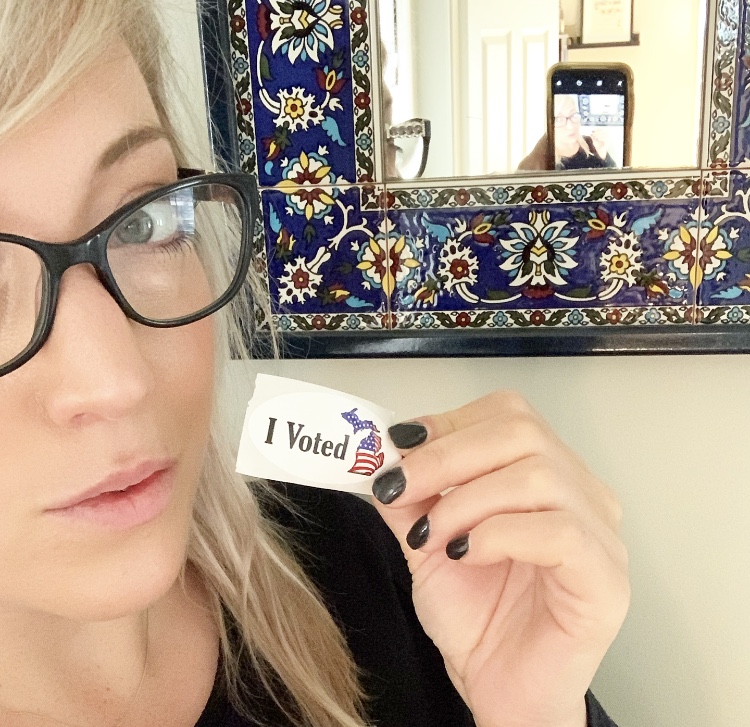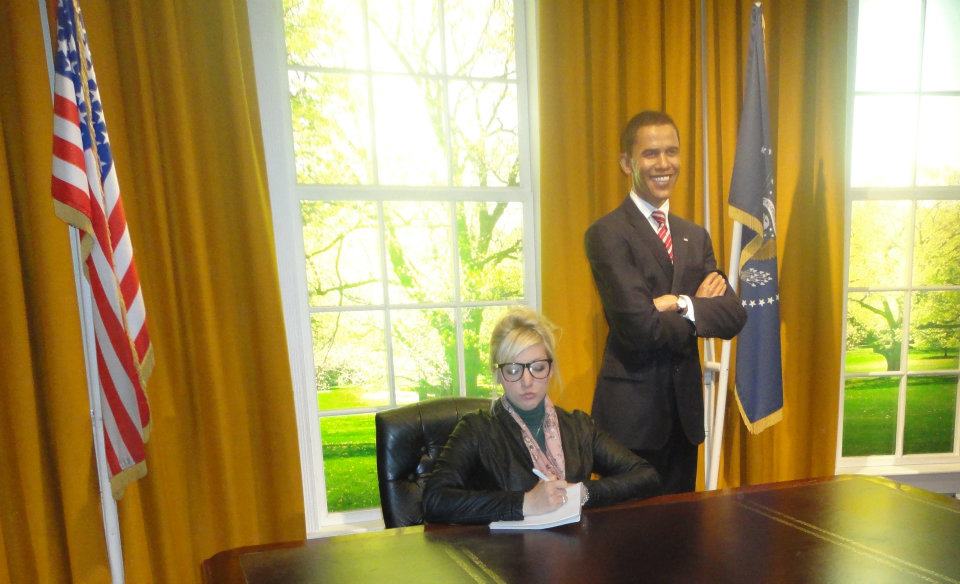I’ve never been one to either start or engage in political conversation; or to overly and overtly showcase my political perspectives and leanings. Growing up, I learned to “respect the office” no matter who sat in the Oval Office; a value rooted – I believe – from my military and Foreign Service household. And I tend to hold that value now into adulthood as I choose not to report on social media or in wider social circles my opinions about the person behind the desk in the Oval Office.
As a sociologist, I am drawn to the facts in election seasons; but, not the facts you’re probably thinking like the policy positions and debate material. I’m curious about the facts people vote on based on their values, which are full of nuances and shaped because of their worldview. The facts I consider include my believing that no election should contain the words “right” and “wrong” and that decisions cast don’t make us into “winners” and “losers.” The fact that in my travels I have seen candidate signage change from one state to another – and even house to house in neighborhoods, makes me wonder how many of the people who have placed these signs have had the courage to listen to those who placed the candidate sign of a different party. With the result of the 2020 election, it’s important to look at not just the facts of policy position or the person taking office; it’s important to look at how we are responding to the facts. Let’s consider the facts of emotion management as we embrace the reality of election facts. Emotion management is not using those facts to assume, accuse, or assault. Emotion management is using those facts to ask open ended questions – and to not be upset if it’s not what we consider the “right” answer.
Emotion management is first and foremost taking emotions seriously. There have been “facts” thrown out this election season that some positions are based on “thought” and some are based on “emotion.” The fact is, it is not accurate to say: “I’m casting my vote this way because ‘I’m thinking’” and you’re making your decision because ‘You’re emotional.’” Our values, worldview, and choices are made up of both feelings and thoughts. We attend to our emotions because we care deeply about a particular position or decision, but we need to ensure that emotions don’t drive our conversations.
Emotion management is pausing to consider if a social media post or verbal response is evoking or suppressing emotions. Consider: you don’t need to have the last word, even if you are right. There are disagreements about position and policy and that’s ok — what’s not ok is when you don’t listen to where someone is coming from in their perspective and worldview. Asking questions as someone ready to understand – and not as someone armed to respond – is an act of kindness and of exercising emotion management.
Emotion management is identifying what information our emotions are giving us and not asking others to be responsible for them. All emotions are valid and are an important human mechanism in each of us to help give clues about what we need. Pause to understand the whys behind your values and where your perceptions have been shaped. Focus on the things you can control, starting with the intentionality of getting curious about another person’s perspective. Claim some relational land with yourself and with others as you look at the facts of why emotions are there and listen with deep grace and patience.
Emotion management is reminding yourself that, “Everyone has a story. Have the patience to listen. Have the wisdom to learn.” Engaging as a listener to both self and others as together we see and experience the implications of this election season takes patience and wisdom. Listening is initiated in asking questions and resisting the urge to “fix” feelings. Some will struggle with this more than others. Some will find peace sooner than others. Some will feel hurt and fear and as a result, that may come out as anger. Don’t let emotions drive your life in reactionary ways. You don’t need to react.
Emotion management is using facts to find potential common ground and to find those intersections of agreement. Emotion management is using those facts to exercise emotional intelligence and empathy. It’s not coming to the table saying, “change my mind.” It’s coming to the table to engage difference and asking, “can you explain to me why these facts are so important to you?” It’s coming into conversation without armor or case studies or a fixed mindset. Emotion management is developing a growth mindset and protecting your energy about what discussions you engage in.

As we enter into a season with ongoing political transition and conversation, ask yourself this question Arlie Hochschild poses in an On Being podcast, “Do you want to be right in every moment, or do you want to be part of the larger healing? …. [Be] models of repair.” Emotion management is a form of empowerment; it is leading with purpose and impact. As we are going to experience the spectrum of emotions this month, let’s not be ashamed of our own emotions or make others feel shame because of theirs. But ensure that your emotions don’t run the show and purpose now in your heart to take the power away from them. Reaction isn’t necessary. Phrases like, “I’m disappointed, but….” and “It’s hurtful that…..” and “I’m concerned that…..” can empower you to validate your feelings and not be consumed by them. Soothe any fear and hurt with what you can control and remember the principle that trusting in others is not blind obedience. Your reaching across political spectrums is not eliminating difference; it’s bridging. I may not reveal or discuss my political stance, but I will contribute to the larger story of what I can do by listening to others.
Take your emotions seriously. Take others’ emotions seriously and together “May we be people of peace with voices of hope doing the hard work of love.” We must not see difference as a threat; but an opportunity to find bridges.


